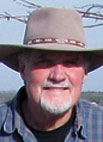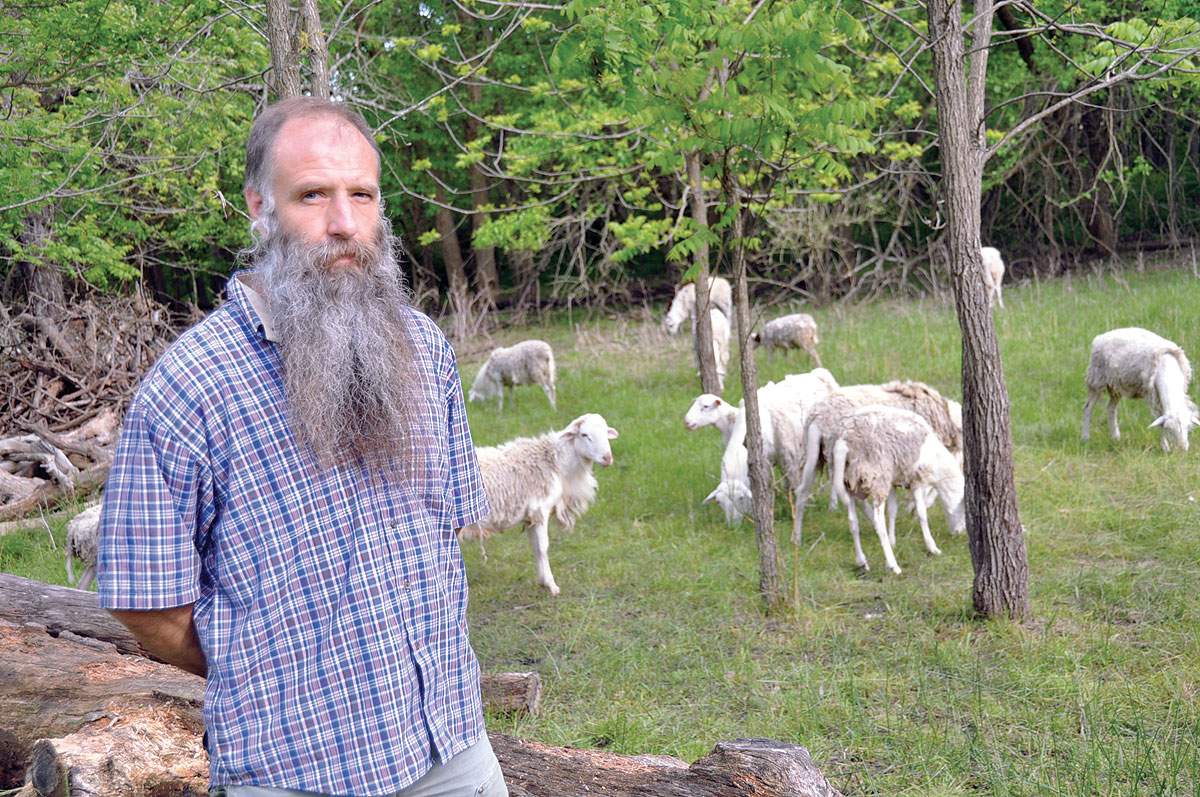
Cedar Valley Farm began as a small dairy during the Great Depression
HOUSTON, MO. – Cedar Valley Farm, home to Ramsey Red Angus, is a prime example of legacy farming in the Ozarks. Jimmy and Cynthia Ramsey maintain a tradition spanning five generations.
Cynthia traces her lineage back to the Great Depression, when her great-grandfather, Chester Jones, purchased a small dairy farm and laid the foundation for a family legacy. Her grandparents, Dale Lloyd and Clara May Jones, maintained the farm until the late 1980s. The family continued nurturing the land, evolving from dairy to beef cattle.
Cynthia recalled her early days on the farm when horses held her fascination more than cattle.
“When I look back, I can see that our ranch was the only place in life that I never felt self-conscious or unsure of myself,” she said.
Today, Jimmy and Cynthia own Cedar Valley Farm, a property registered as a Missouri Century Farm with roots stretching back 148 years. The landscape bears witness to generations past, with barns erected by Cynthia’s great-grandfather, Ford Hayes – remnants of a bygone era scattered throughout the property.
At Ramsey Red Angus, the focus is clear: the Red Angus breed reigns supreme. What began as an experiment with Red Angus crosses became a commitment to the breed renowned for its quality and versatility.
“We liked the Red Angus so much that we just stuck with them,” Cynthia said. “They really are the industry’s most desired females and we have found them to be excellent carcass prospects as well.”
The breeding program at Ramsey Red Angus blends tradition and innovation. While natural cover is utilized for most of the herd, the introduction of AI in recent years has allowed for greater genetic diversity. Calving season in the fall aligns with the family’s off-farm commitments, ensuring minimal disruption and optimal calf health.
“Both Jimmy and I have full-time ‘town jobs’ so we wanted to avoid weather concerns that come with calving in spring and weaning in fall,” Cynthia said.
On the pastures of Cedar Valley Farm, 21 mature cows graze on 64 acres.
“Our fields are predominantly fescue,” Cynthia said. Substantial renovation was necessary when the property was first purchased due to the overgrowth of brush and black locust trees.
Cynthia said the farm’s pastures contain a mix of native grasses, specifically little bluestem.
“We’re working to establish ladino clover in our fescue pastures,” she added, “And are seeing good results.”
The Ramseys stockpile fescue pasture for the winter and strip graze to ensure optimal nutrition and soil health. The farm also employs strip grazing during growing seasons to allow for intensive rotational grazing.
“These are practices that we used on my parent’s ranch and we found them to be very successful,” she said, referring to her parents, Jim and Glenda Jones.
Their approach to mineral supplementation is straightforward: offering free-choice trace minerals and prioritizing soil and forage management for optimal impact. Through experimentation with various mineral programs, they’ve found that focusing on the health of their soil and forage yields the most significant benefits.
When it comes to weaning, they opt for a method that minimizes stress and promotes weight gain. Calves are separated from their mothers at six months of age using either gate or pasture-weaning techniques.
“We’ve found that if the cows and calves have the ability to see, hear, smell, and touch without allowing the calves to nurse, we see significantly less stress and illness,” Cynthia said.
Typically, their cows are comfortable enough to leave their calves within 72 hours. During this transition, calves receive a small ration of grain, usually a 12 percent protein mix, along with hay or pasture, depending on conditions. For example, during recent droughts, their weaned calves have been solely on hay until suitable pasture becomes available.
Retail calves are kept on pasture with a small grain ration until processing. These practices have proven to create an environment conducive to the well-being and growth of their cattle, ultimately producing flavorful beef.
Health protocols at Cedar Valley Farm are comprehensive; a broad-spectrum, long-range dewormer is utilized to combat parasites effectively. Additionally, calves receive regular vaccinations, with bull calves being banded around three months of age. A five-way vaccine is typically administered to cover diseases such as blackleg and respiratory ailments.

“We don’t currently use hormone implants or antibiotic feed additives,” Cynthia said. “But, we’re not against them.”
She emphasized the importance of research-backed administration practices to safeguard livestock and the food supply.
To monitor the reproductive health of their herd, they conduct pregnancy blood tests on cows approximately 45 days after natural service exposure. With a 45-day breeding season, their calving seasons typically span less than 50 days, ensuring efficient herd management and reproductive success.
In the spirit of diversification, Ramsey Red Angus ventured into direct-to-consumer beef sales. Via their online store and regional deliveries, the Ramseys offer a taste of their heritage, sharing the fruits of their labor with a broader audience.
While their primary focus is beef, the Ramseys also raise hogs and chickens. Hogs are sourced from a local producer and raised to maturity on-site. While their family consumes the majority of the pork, they offer a limited quantity for sale seasonally through their online store. Hogs are provided with a balanced diet, including a small 12 percent protein feed ration, and undergo regular deworming as part of their health protocol.
Their chicken operation serves dual purposes: egg production and meat. Their flock consists primarily of Plymouth White Rock hens, crossbred with a Jersey Giant rooster. They incubate eggs from this cross in early spring and raise the chicks in chicken tractors until processing at approximately 20 weeks of age. This approach allows for ample egg production while also yielding chickens of suitable size for their family’s needs. With a total of 20 birds, including a mix of breeds such as Americanas, Red Rock, and Black Silkie, they maintain a manageable flock size, supplementing their diet as needed with feed.
In 2023, Cedar Valley Farm processed eight whole beef for retail sale and an additional five on shares, along with two hogs.
As the seasons ebb and flow, so too does life at Cedar Valley Farm. The legacy of Ramsey Red Angus is not merely measured in cattle and acres, but in the bonds forged with the land and the communities it sustains.







